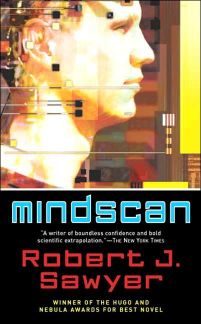Benjamin Libet leaves us

Those of you who've read my Mindscan may remember this scene that takes place shortly after Jake has his consciousness copied into an artificial body:
I went to see Dr. Porter about the problem with thoughts I intended to keep private being spoken aloud.That was based in large part on the pioneering research of Benjamin Libet. Sadly, Dr. Libet passed away last week, at the age of 91. I'm sorry to see him go. Wikipedia has a good article about him. R.I.P., Dr. Libet.
"Ah, yes," he said, nodding. "I've seen that before. I can make some adjustments, but it's a tricky mind-body interface problem."
"You've got to fix it. Unless I explicitly decide to do something, it shouldn't happen."
"Ah," said Porter, his eyebrows working with glee, "but that's not how humans work -- not even biological ones. None of us consciously initiate our actions."
I shook my head. "I've studied philosophy, doc. I'm not prepared to give up on the notion of free will. I refuse to believe that we live in a deterministic universe."
"Oh, indeed," said Porter. "That's not what I meant. Say you walk into a room, see someone you know, and decide to extend your hand in greeting. Of course, your hand doesn't instantly shoot out; first, stuff has to happen in your brain, right? And that stuff -- the electrical change in the brain that precedes voluntary action -- is called the readiness potential. Well, in a biological brain the readiness potential begins 550 milliseconds -- just over half a second -- prior to your hand beginning to move. It really doesn't matter what the voluntary act is: the readiness potential occurs in the brain 550 milliseconds before the motor act begins. Okay?"
"Okay," I said.
"Ah, but it's not okay! See, if you ask people to indicate exactly when they decided to do something, they report that the idea occurred to them about 350 milliseconds before the motor act begins. A guy named Benjamin Libet proved that ages ago."
"But -- but that must be a measurement error," I said. "I mean, you're talking about milliseconds."
"No, not really. The difference between 550 milliseconds and 350 milliseconds is a fifth of a second: that's quite a significant amount of time, and easy enough to measure accurately. This basic test has been replicated over and over again since the 1980s, and the data are rock solid."
"But that doesn't make sense. You're saying --"
"I'm saying that what our intuition tells us the sequence of events should be, and what the sequence actually is, don't agree. Intuitively, we think the sequence must be: first, you decide to shake hands with your old friend Bob; second, your brain, in response to that decision, begins sending signals to your arm that it wants to shake hands; and third, your arm starts to swing up for the handshake. Right? But what really happens is this: first, your brain starts sending signals to shake hands; second, you consciously decide to shake hands with your old friend; and third, your arm starts to swing up. The brain has started down the road to shaking hands before you have consciously made any decision. Your conscious brain takes ownership of the action, and fools itself into thinking it started the action, but really it's just a spectator, watching what your body is doing."
"So you are saying there's no free will."
"Not quite. Our conscious minds have the free will to veto the action. See? The action begins 550 milliseconds prior to the first physical movement. Two hundred milliseconds later, the action that's already been started comes to the attention of your conscious self -- and your conscious self has 350 milliseconds to put on the brakes before anything happens. The conscious brain doesn't initiate so-called voluntary acts, although it can step in and stop them."
"Really?" I said.
Porter nodded his long face vigorously. "Absolutely. Everybody's experienced this, if you stop and think about it: you're lying in bed, quite mellow, and you look over at the clock, and you think to yourself, I really should get up, it's time to get up, I've got to go to work. You may think this a half-dozen times or more, and then, suddenly, you are getting up -- the action has begun, without you being consciously aware that you've finally, really made the decision to get out of bed. And that's because you haven't consciously made that decision; your unconscious has made it for you. It -- not the conscious you -- has concluded once and for all that it really is time to get out of bed."
"But I didn't have this problem when I was biological."
"No, that's right. And that was because of the slow speed of chemical reactions. But your new body and your new brain operate at electrical, not chemical, speeds, and the veto mechanism sometimes comes into play too late to do what it's supposed to do. But, as I said, I can make a few adjustments. Forgive me, but I'm going to have to pull back the skin on your head, and open up your skull ..."

The Robert J. Sawyer Web Site



0 Comments:
Post a Comment
Subscribe to Post Comments [Atom]
<< Home